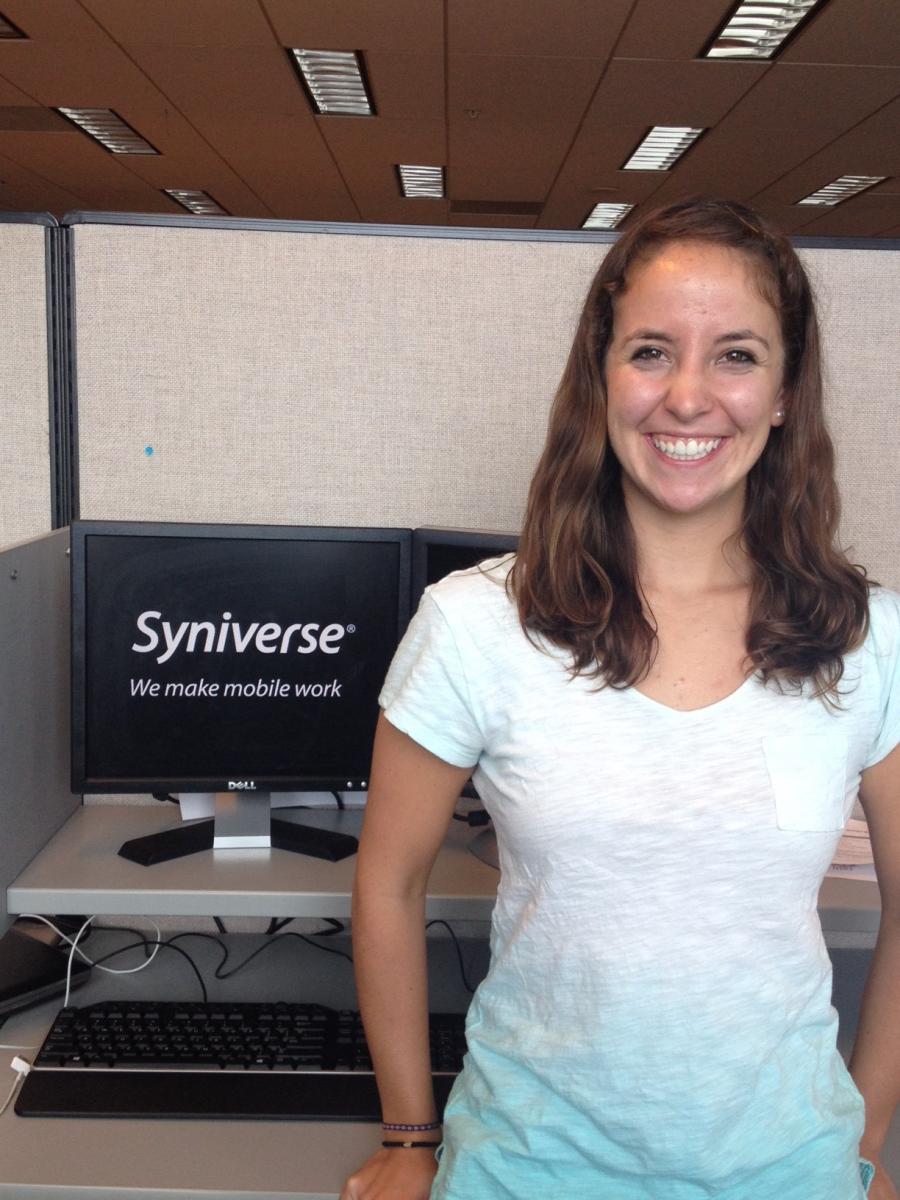EDF Climate Corps fellow | August 18, 2014
By: Meaghan Krohn, Graduate of the London School of Economics and Political Science
One of the biggest hurdles I face in my transition from graduate school into my career is that my chosen career path – corporate sustainability – is not a traditional profession. I went to The London School of Economics and Political Science, which is a fantastic institution with a supportive and enthusiastic Careers center. However, most of the job postings and career fairs on campus were geared towards more classic trajectories like finance, accounting and consulting. I found myself wondering where corporate sustainability fits in, and how I can find a job when everyone seems to be looking for Wall Street traders and business analysts.
The more I thought about what sustainability means to me and how I want to make my mark on the world, I realized that separating “traditional” careers from what I wanted to do was part of the problem. Corporate responsibility is only going to be effective if it breaks down the misconception that “traditional” businesses and sustainability are mutually exclusive. Sustainability isn’t separate from business strategy, it is an integral part of it.

This summer, as an Environmental Defense Fund Climate Corps fellow at Syniverse, I have had the opportunity to do just that: integrate responsibility and the triple-bottom-line into a company’s business strategy.
I was thrilled to be matched with Syniverse for my fellowship precisely because of how the project fits into my goal of integrating sustainability into the business world by breaking down barriers and working on a paradigm shift. In order for sustainability ideals to gain traction in traditional business settings, practitioners need to speak to executives in their own language and highlight how it fits into existing structures. Materiality assessments do just that. Materiality is a concept borrowed from accounting, and refers to issues that may impact the way a reasonable investor would make an economic decision about a company.
A materiality assessment asks stakeholders – anyone affected by the businesses’ operations – how important they think certain issues are to that business. I surveyed internal stakeholders and compared executives’ opinions against those of employees and managers. I asked how strongly certain topics could impact Syniverse’s business operations. The results of the assessment show which issues are more or less critical to both parties. Some of the results were predictable. For example, executive managers rated global operations as a more critical issue than directors and lower-level employees. This makes sense since it is the executives’ job to think about global business strategies, whereas directors and managers tend to work more regionally. Both groups of stakeholders also recognized that extreme weather events – increasingly more common due to climate change and especially relevant given Tampa’s location on the Gulf Coast – have a strong impact on Syniverse’s business operations.
With the information from the materiality assessment, Syniverse can design programs that focus on those issues that both groups of stakeholders see as highly impactful to the business. It doesn’t make sense to invest resources on something that does not provide value to the business.
As a sustainability practitioner, I aim to improve a company’s social and environmental impact, and that means looking at the organization’s DNA and infusing sustainability principles in every action. Every company - even “conventional” ones - benefits from this shift, and I’m happy to have spent the summer helping Syniverse on its journey.
Sustainability may not be a conventional career path yet, but as Jeff Selingo, author of College (Un)bound says, “The jobs of tomorrow just don’t exist today.” To bridge the gap between today and tomorrow, practitioners must show how traditional fields and sustainability interact to yield success along all three bottom lines: people, planet and profit. When they come together, the result is an almost limitless realm of cost-saving, revenue-generating, energy-reducing possibilities!
About EDF Climate Corps
EDF Climate Corps (edfclimatecorps.org) taps the talents of tomorrow’s leaders to save energy, money and the environment by placing specially trained EDF fellows in companies, cities and universities as dedicated energy problem solvers. Working with hundreds of leading organizations, EDF Climate Corps has uncovered nearly $1.3 billion in energy savings. For more information, visit edfclimatecorps.org. Read our blog at edfclimatecorps.org/blog. Follow us on Twitter at twitter.com/edfbiz and on Facebook at facebook.com/EDFClimateCorps.